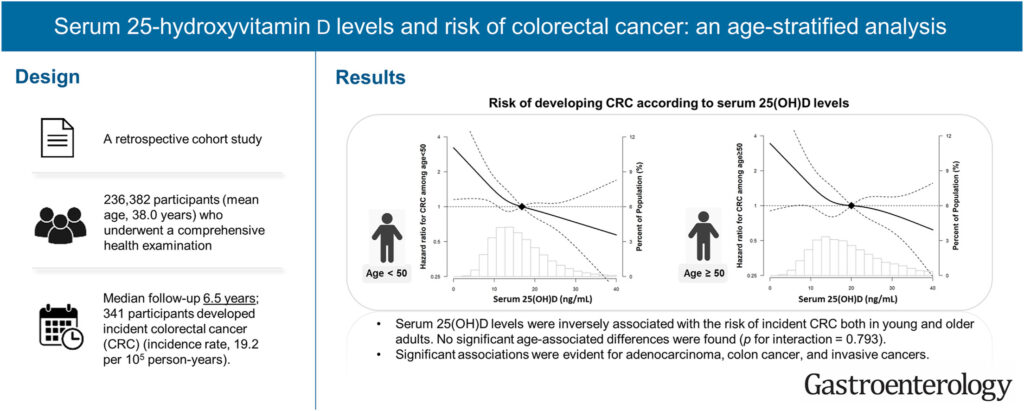The October issue of Gastroenterology features an original research article, “Serum 25-Hydroxyvitamin D Levels and Risk of Colorectal Cancer: An Age-Stratified Analysis,” and an editorial, “Vitamin D and Early-Onset Colorectal Cancer—Rays of Hope?” exploring the role of vitamin D in early-onset CRC.
The National Health and Nutrition Examination Surveys show that between 25-35% of people under the age of 50 are vitamin D deficient (<20 ng/mL).
In this issue of Gastroenterology, researchers examine the association between serum levels of vitamin D and risk of subsequent CRC over six and a half years in a cohort of Korean adults. Higher vitamin D levels contributed to a lower risk of CRC in adults under 50.
Key takeaways
Daily dosing, rather than large-bolus dosing, reduces total cancer mortality, according to multiple meta-analyses of past randomized controlled trials.
Besides CRC, vitamin D deficiency is associated with cardiovascular disease, certain cancers, chronic gastrointestinal diseases such as inflammatory bowel disease, compromised bone health and mental health disorders. The recent surge in these chronic conditions among younger populations highlights the importance of maintaining adequate vitamin D levels starting in early life.













